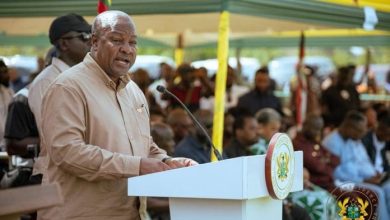Gyakye Quayson woes deepen, Supreme Court throws him out again

Beleaguered Member of Parliament (MP) for Assin North, James Gyakye Quayson, has had his woes deepened with the dismissal of a review application he filed at the Supreme Court.
He was seeking to overturn the decision of the apex court to expunge his name from the records of Parliament, but a nine-member panel of the court unanimously dismissed the application on Tuesday, July 25, 2023.
The Supreme Court had in a ruling challenging the eligibility of Mr Gyakye Quayson to stand for election in the 2020 parliamentary election in the Assin North constituency, ordered Parliament to expunge his name as MP.
In that ruling, the apex court, presided over by Justice Jones Dotse ruled that the Electoral Commission (EC) acted unconstitutionally in allowing him to contest the 2020 parliamentary elections with no proof of him renouncing his Canadian Citizenship.
He had since gone ahead to win the by-election in the constituency. The MP is currently facing trial charged with five counts of forgery of passport or travel certificate, knowingly making a false statutory declaration, perjury and false declaration for office at the High Court in Accra.
Review Application
Lawyers of the troubled MP, however, filed a review application at the Supreme Court to overturn its earlier decision. The grounds of the review application as argued by lead counsel, Tsatsu Tsikata were that the decision of the apex court was made up of fundamental and basic errors.
The application was however opposed by the Attorney General, Godfred Yeboah Dame, who went ahead with legal arguments to back his position.
No merit
In the ruling on Tuesday, the Supreme Court held that the application had no merit as it did not meet the threshold for review as stipulated by the 1992 Constitution and the Supreme Court rules.
Delivering the decision of the apex court, the Chief Justice, Justice Gertrude Araba Esaaba Torkornoo, held that most of the grounds raised by Mr Quayson in his application were a rehash of the arguments raised in the original case.
Furthermore, the court held that some of the grounds in the review application were disagreements the applicant had with the court on the judgment which did not constitute exceptional circumstances for the court to exercise its review jurisdiction in favour of the MP.










